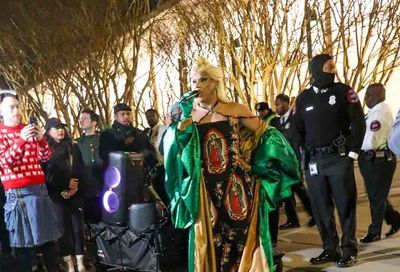Railroad employee health care plans agree to drop exclusions on transgender surgery
Transgender employees and dependents will now be able to reduce the out-of-pocket costs associated with surgery

The two health insurance plans that cover the overwhelming majority of railroad employees nationwide have dropped blanket exclusions for transgender-related surgery as part of an agreement negotiated with Transgender Legal Defense & Education Fund.
The agreement was reached with rail industry leaders and unions after TLDEF demanded that the employee insurance plans — the National Railway Carriers and UTU Health and Welfare Plan, and the Railroad Employees’ National Health and Welfare Plan — begin covering any treatments or procedures, including surgery, that have been prescribed as medically necessary.
TLDEF pushed for the agreement on behalf of Leah Kozak, a Buffalo-based transgender freight conductor for 20 years who was denied coverage for gender confirmation surgery, even though it was recommended to treat her gender dysphoria.
Had the exclusion remained in place, Kozak — and other transgender railroad employees, or employees with transgender dependents, totaling about 350,000 in total — would have been forced to pay for any surgical expenses out of pocket.
Andy Marra, the executive director of TLDEF, praised the development as a victory for transgender employees and their families, saying in a statement: “We commend both the rail industry and labor unions for making the right decision to invest in the health and well-being of its transgender workers and those with children who are transgender.”
The agreement comes just months after TLDEF launched the Trans Health Project, an initiative designed to combat health-insurance discrimination facing transgender people nationwide. The project seeks to educate transgender individuals about their rights and fight on behalf of expanded access to health care, pushing insurance carriers to drop any outdated exclusions that categorize gender confirmation surgery or other transition-related treatments as “cosmetic” or “optional.”
According to the 2015 U.S. Transgender Survey, more than half of all transgender people who sought coverage for surgical expenses have been denied by insurers. One-quarter of transgender people have experienced trouble getting their health insurance to cover certain procedures or treatments, and more than one-third avoided seeking care altogether because of concerns about out-of-pocket costs.
“Ms. Kozak dedicated 20 years to her job in a freight yard and paid into the employee health plan, but she was denied access to medically necessary care because of the exclusion,” Noah Lewis, the director of the Trans Health Project at TLDEF, said in a statement.
“In making this important change, the rail industry now ensures all transgender railroad employees and their dependents will receive the health care they need going forward.”
Read more:
State Department appeals decision recognizing gay couple’s daughter’s citizenship
Federal court blocks Idaho’s law banning transgender athletes from competing in women’s sports
Federal judge blocks Trump administration rule stripping away transgender health care protections
Support Metro Weekly’s Journalism
These are challenging times for news organizations. And yet it’s crucial we stay active and provide vital resources and information to both our local readers and the world. So won’t you please take a moment and consider supporting Metro Weekly with a membership? For as little as $5 a month, you can help ensure Metro Weekly magazine and MetroWeekly.com remain free, viable resources as we provide the best, most diverse, culturally-resonant LGBTQ coverage in both the D.C. region and around the world. Memberships come with exclusive perks and discounts, your own personal digital delivery of each week’s magazine (and an archive), access to our Member's Lounge when it launches this fall, and exclusive members-only items like Metro Weekly Membership Mugs and Tote Bags! Check out all our membership levels here and please join us today!



















You must be logged in to post a comment.